98 Inspiring Quotes By H. P. Lovecraft That Bibliomaniacs Should Know
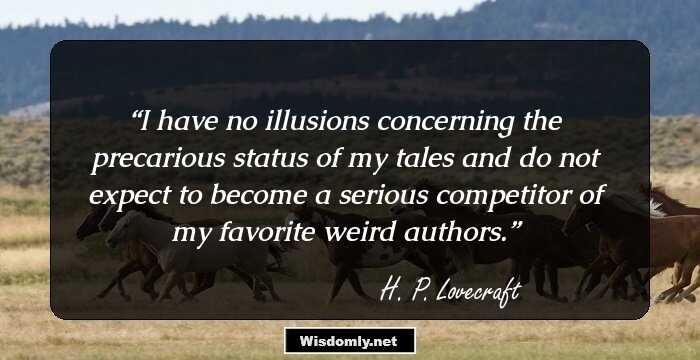
I have no illusions concerning the precarious status of my tales and do not expect to become a serious competitor of my favorite weird authors.
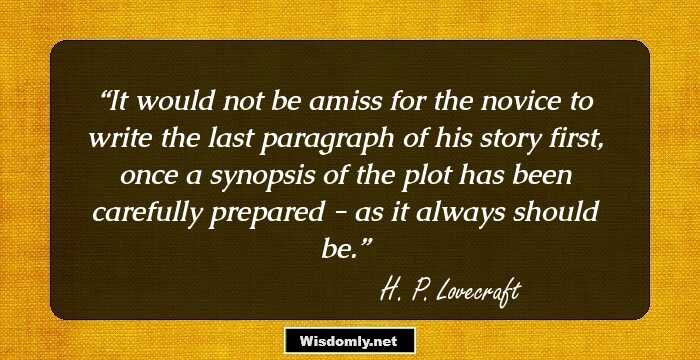
It would not be amiss for the novice to write the last paragraph of his story first, once a synopsis of the plot has been carefully prepared - as it always should be.
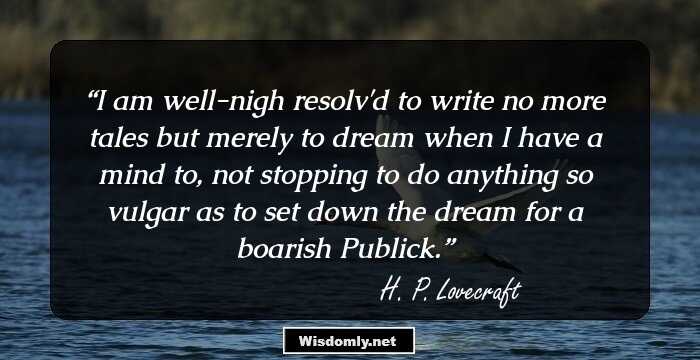
I am well-nigh resolv'd to write no more tales but merely to dream when I have a mind to, not stopping to do anything so vulgar as to set down the dream for a boarish Publick.
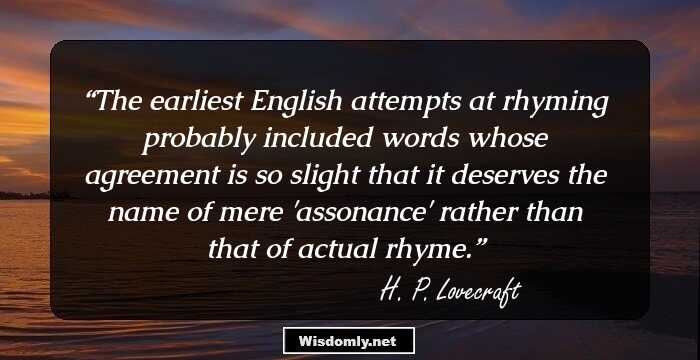
The earliest English attempts at rhyming probably included words whose agreement is so slight that it deserves the name of mere 'assonance' rather than that of actual rhyme.
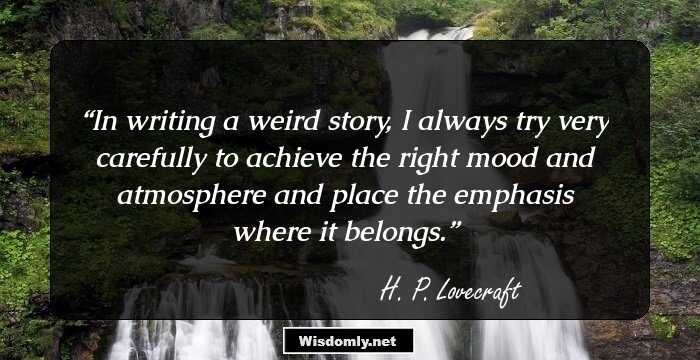
In writing a weird story, I always try very carefully to achieve the right mood and atmosphere and place the emphasis where it belongs.
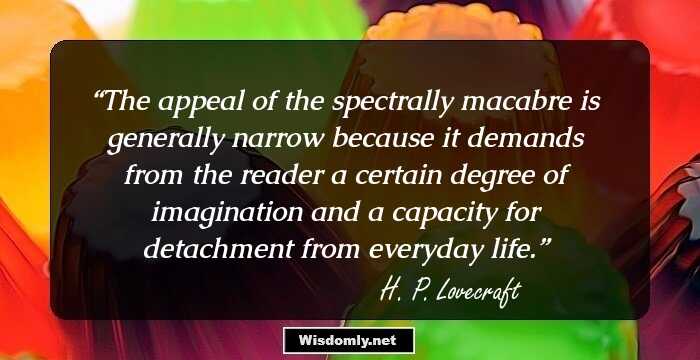
The appeal of the spectrally macabre is generally narrow because it demands from the reader a certain degree of imagination and a capacity for detachment from everyday life.
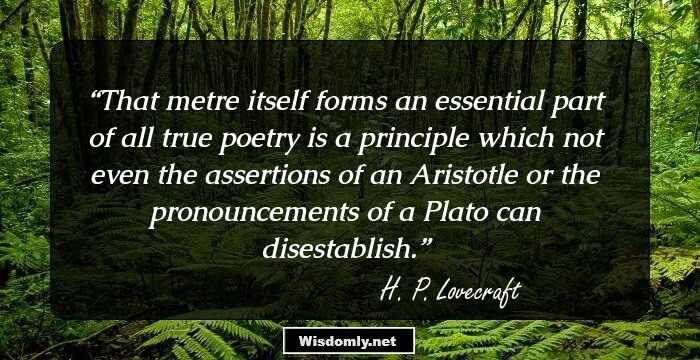
That metre itself forms an essential part of all true poetry is a principle which not even the assertions of an Aristotle or the pronouncements of a Plato can disestablish.
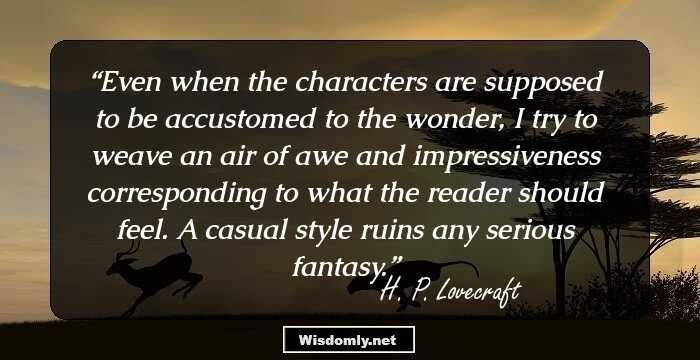
Even when the characters are supposed to be accustomed to the wonder, I try to weave an air of awe and impressiveness corresponding to what the reader should feel. A casual style ruins any serious fantasy.
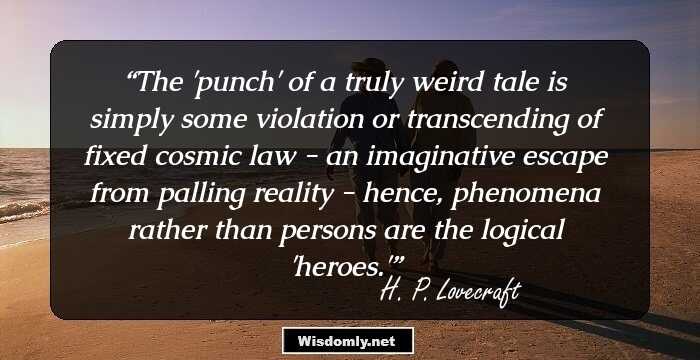
The 'punch' of a truly weird tale is simply some violation or transcending of fixed cosmic law - an imaginative escape from palling reality - hence, phenomena rather than persons are the logical 'heroes.'
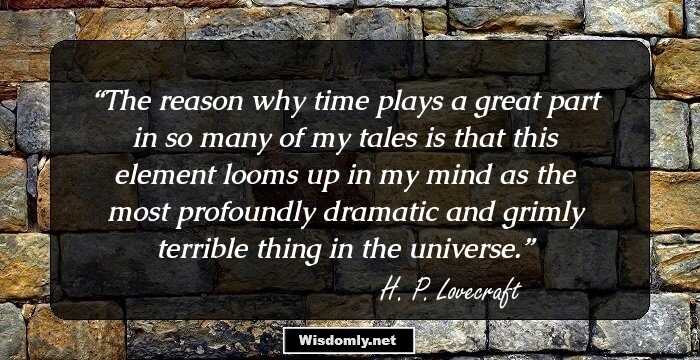
The reason why time plays a great part in so many of my tales is that this element looms up in my mind as the most profoundly dramatic and grimly terrible thing in the universe.
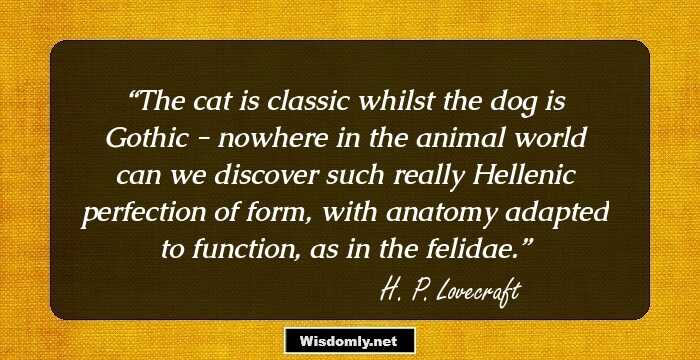
The cat is classic whilst the dog is Gothic - nowhere in the animal world can we discover such really Hellenic perfection of form, with anatomy adapted to function, as in the felidae.
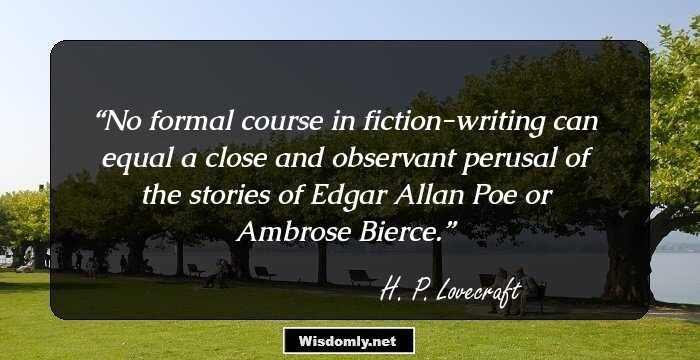
No formal course in fiction-writing can equal a close and observant perusal of the stories of Edgar Allan Poe or Ambrose Bierce.

Throw a stick, and the servile dog wheezes and pants and shambles to bring it to you. Do the same before a cat, and he will eye you with coolly polite and somewhat bored amusement.
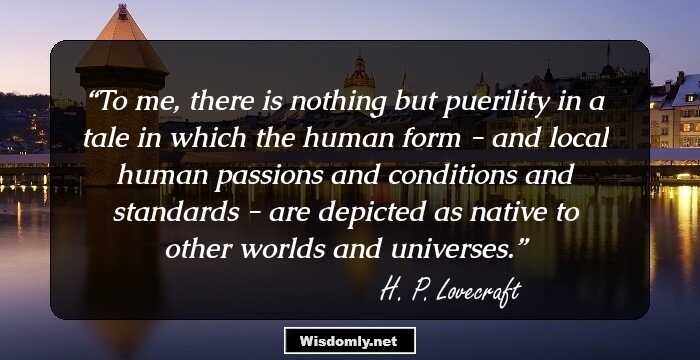
To me, there is nothing but puerility in a tale in which the human form - and local human passions and conditions and standards - are depicted as native to other worlds and universes.
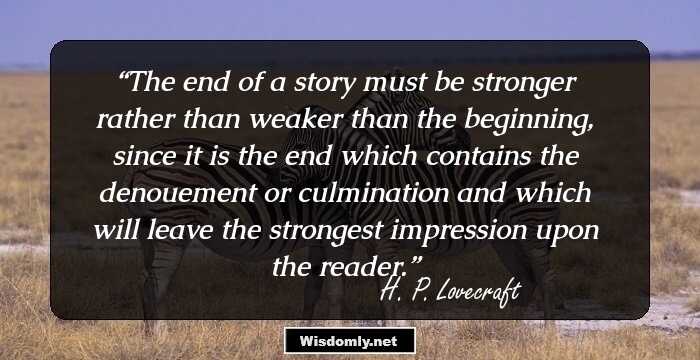
The end of a story must be stronger rather than weaker than the beginning, since it is the end which contains the denouement or culmination and which will leave the strongest impression upon the reader.
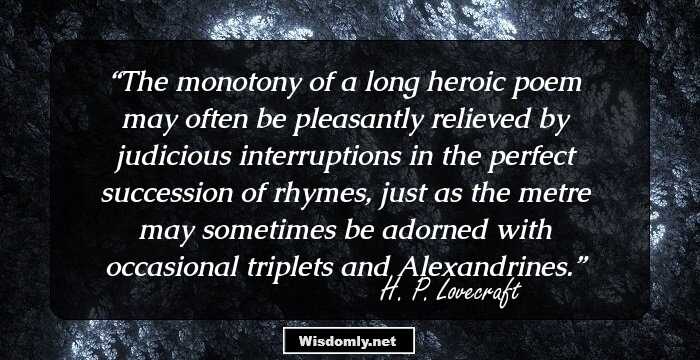
The monotony of a long heroic poem may often be pleasantly relieved by judicious interruptions in the perfect succession of rhymes, just as the metre may sometimes be adorned with occasional triplets and Alexandrines.
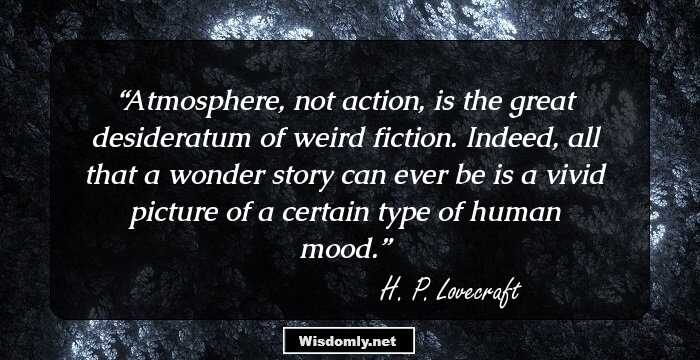
Atmosphere, not action, is the great desideratum of weird fiction. Indeed, all that a wonder story can ever be is a vivid picture of a certain type of human mood.
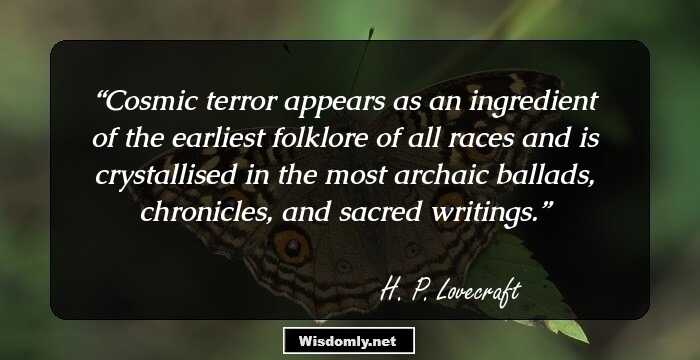
Cosmic terror appears as an ingredient of the earliest folklore of all races and is crystallised in the most archaic ballads, chronicles, and sacred writings.
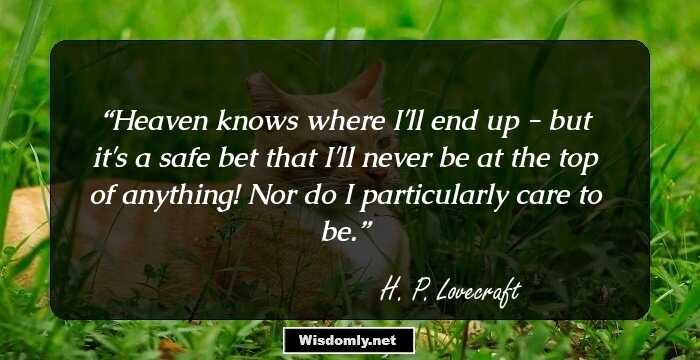
Heaven knows where I'll end up - but it's a safe bet that I'll never be at the top of anything! Nor do I particularly care to be.
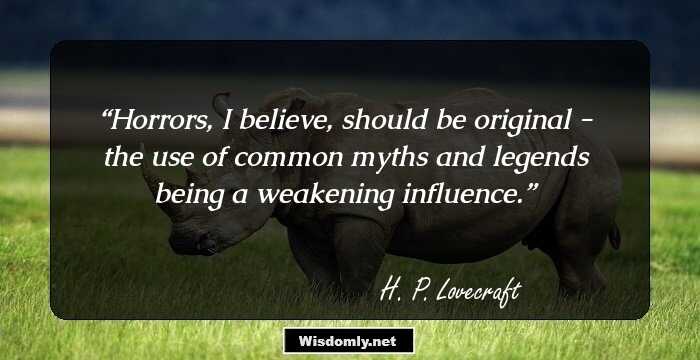
Horrors, I believe, should be original - the use of common myths and legends being a weakening influence.

I couldn't live a week without a private library - indeed, I'd part with all my furniture and squat and sleep on the floor before I'd let go of the 1500 or so books I possess.
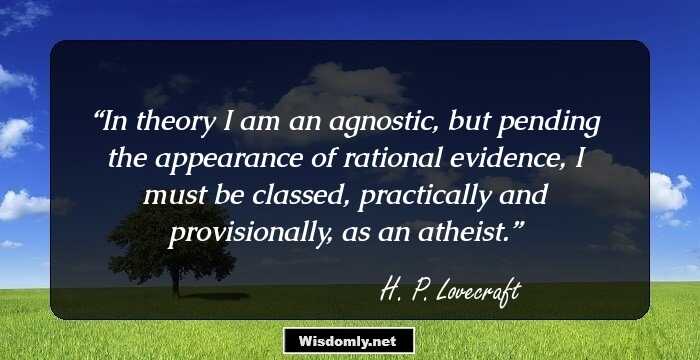
In theory I am an agnostic, but pending the appearance of rational evidence, I must be classed, practically and provisionally, as an atheist.
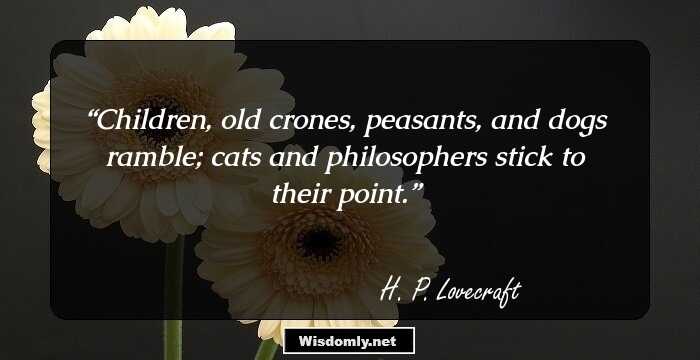
Children, old crones, peasants, and dogs ramble; cats and philosophers stick to their point.
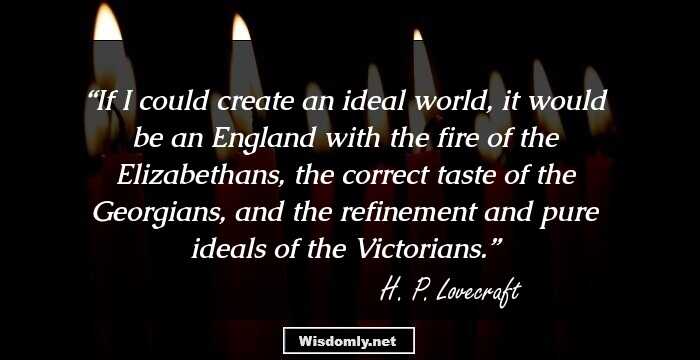
If I could create an ideal world, it would be an England with the fire of the Elizabethans, the correct taste of the Georgians, and the refinement and pure ideals of the Victorians.
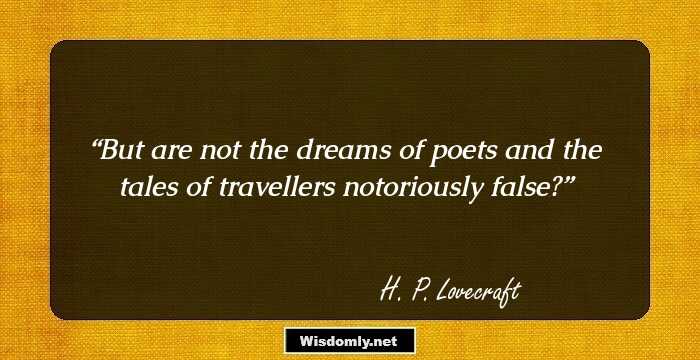
But are not the dreams of poets and the tales of travellers notoriously false?
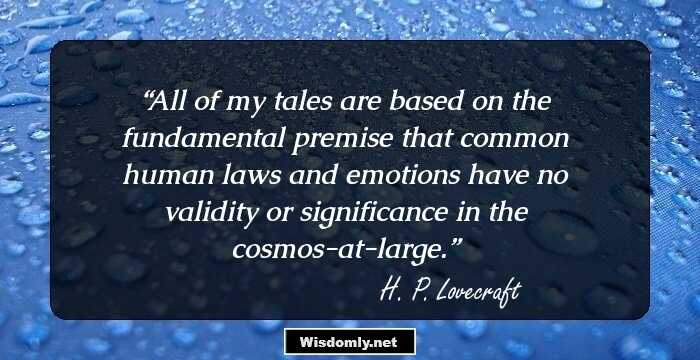
All of my tales are based on the fundamental premise that common human laws and emotions have no validity or significance in the cosmos-at-large.
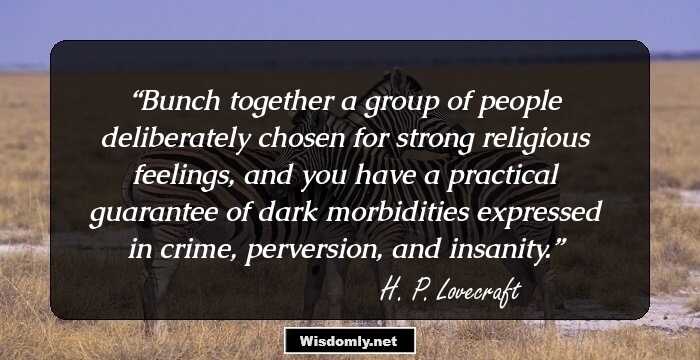
Bunch together a group of people deliberately chosen for strong religious feelings, and you have a practical guarantee of dark morbidities expressed in crime, perversion, and insanity.

There be those who say that things and places have souls, and there be those who say they have not; I dare not say, myself, but I will tell of The Street.
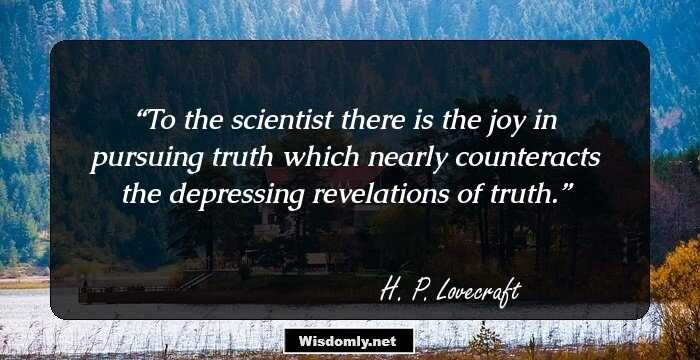
To the scientist there is the joy in pursuing truth which nearly counteracts the depressing revelations of truth.
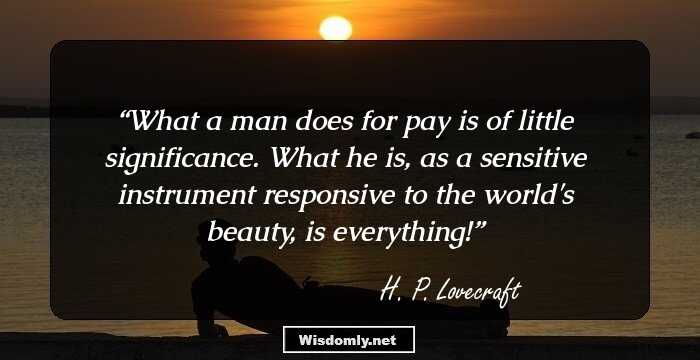
What a man does for pay is of little significance. What he is, as a sensitive instrument responsive to the world's beauty, is everything!










